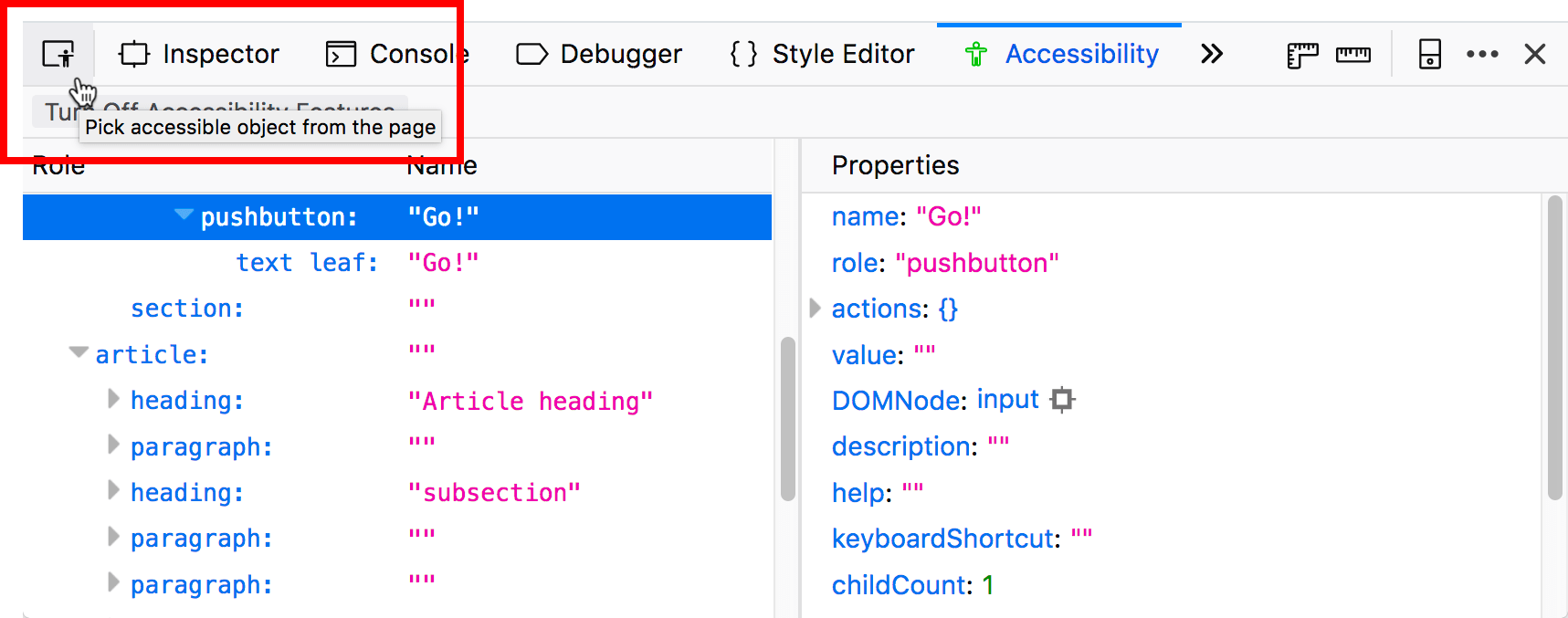Accessibility in Firefox has become a cornerstone of Mozilla’s commitment to inclusive design, ensuring that the web remains open and usable for everyone. As part of our dedication to assistive technology, we continuously enhance accessibility features to support users with diverse needs, including those who rely on screen readers like NVDA and VoiceOver. With innovations such as text recognition, users can effortlessly extract information from images, making browsing more efficient and equitable. Our mission goes beyond mere compliance; we aspire to create a delightful experience for over 1 billion individuals living with disabilities globally. By prioritizing accessibility in Firefox, we aim to empower all users to navigate the digital landscape with ease and confidence.
In today’s digital landscape, the importance of web usability cannot be understated, particularly for those with disabilities. With a focus on enhancing user experience, Firefox employs various strategies and technologies to break down barriers that prevent individuals from fully engaging online. By leveraging groundbreaking tools and techniques, Mozilla enhances browser interactions, ensuring that users can utilize the internet’s vast resources without hindrance. This commitment to accessibility not only supports users with visual impairments but also fosters an inclusive environment where all individuals can thrive. By integrating features designed for diverse audiences, Firefox champions a vision of the web that is truly accessible for every user.
Understanding Accessibility in Firefox
Accessibility in Firefox has become a cornerstone of Mozilla’s mission to promote an inclusive internet. As an accessibility engineer, I have seen firsthand how essential it is to integrate features that cater to users with disabilities. The focus is not merely on compliance with standards; it’s about truly optimizing the browsing experience for everyone, including those who rely on assistive technologies like screen readers. Firefox’s commitment to accessibility ensures that every new feature is tested and enhanced for compatibility with these technologies, facilitating a web that is not just usable but enjoyable for all.
Moreover, accessibility initiatives at Mozilla emphasize the importance of user feedback in the design process. Engaging with the community allows us to understand diverse needs and challenges faced by people with disabilities. For instance, the collaboration with screen reader developers helps refine the browser’s text recognition features, ensuring they operate seamlessly with assistive technologies. Accessibility in Firefox is a continuous journey, integrating user insights to improve functionality and user satisfaction across the board.
Frequently Asked Questions
How does accessibility in Firefox support assistive technology like screen readers?
Accessibility in Firefox focuses on ensuring compatibility with assistive technologies, such as screen readers. Ongoing improvements to the Firefox accessibility engine help deliver essential data to these tools, significantly enhancing the experience for users who rely on them.
What is the role of inclusive design in improving accessibility in Firefox?
Inclusive design in Firefox aims to create a user experience that is not only accessible but also delightful for everyone. This approach involves considering diverse user needs, particularly those with disabilities, to ensure that all features benefit a broad audience.
How does Firefox’s text recognition feature enhance accessibility for users with disabilities?
Firefox’s text recognition feature allows users, especially those with low vision or reading difficulties, to copy text from images. This enhances accessibility by enabling the extraction and enlargement of text for easier reading, making web content more accessible to all.
What improvements have been made in Firefox to enhance the experience for users of screen readers?
Recent improvements in Firefox include a major redesign of its accessibility engine to speed up data processing for screen readers. This initiative, known as ‘Cache the World’, optimizes how quickly web content is announced, making navigation more efficient for users.
Why is Mozilla committed to making Firefox an accessible browser for everyone?
Mozilla is committed to accessibility in Firefox to ensure that over 1 billion people with disabilities can enjoy a seamless web experience. By prioritizing features that benefit assistive technologies and promoting inclusive design, Mozilla strives to make the internet accessible and delightful for everyone.
How can users stay updated on accessibility improvements in Firefox?
Users can stay informed about the latest accessibility enhancements in Firefox by following the Mozilla Accessibility blog, where updates on new features and improvements are regularly posted.
What impact does accessibility in Firefox have on the daily lives of users with disabilities?
Accessibility in Firefox has a profound impact on the daily lives of users with disabilities by providing tools that enhance their ability to navigate the web efficiently. Improvements often lead to positive feedback, indicating that these changes significantly enhance their quality of life.
| Key Point | Details |
|---|---|
| Introduction to Accessibility in Firefox | Mozilla’s commitment to accessibility through development and features aimed at users with disabilities. |
| Text Recognition in macOS | Allows users to copy text from images in the browser, particularly aiding those with low vision by enabling text enlargement. |
| Screen Reader Enhancements | Improvements to Firefox’s accessibility engine for faster document and page loading, enhancing user experience. |
| Personal Impact | The author’s personal connection to accessibility motivates impactful changes that enhance the web experience for everyone. |
Summary
Accessibility in Firefox is a key focus for Mozilla, aiming to create an inclusive and user-friendly browsing experience for everyone. With features like text recognition for images on macOS and continuous enhancements to support screen readers, Firefox is making great strides to ensure that all users, especially those with disabilities, find joy and efficiency in their online interactions. By prioritizing accessibility, Mozilla is not only meeting legal standards but truly enhancing the daily lives of over a billion individuals worldwide.
